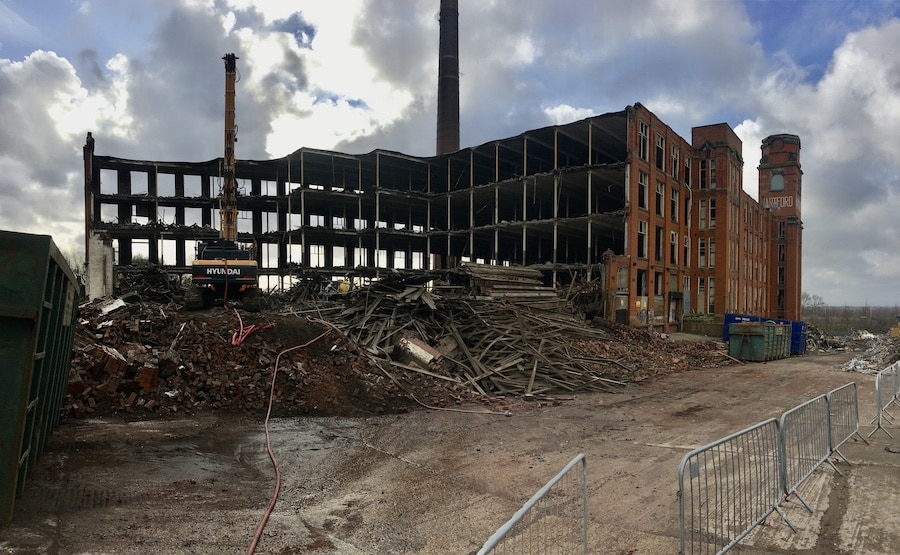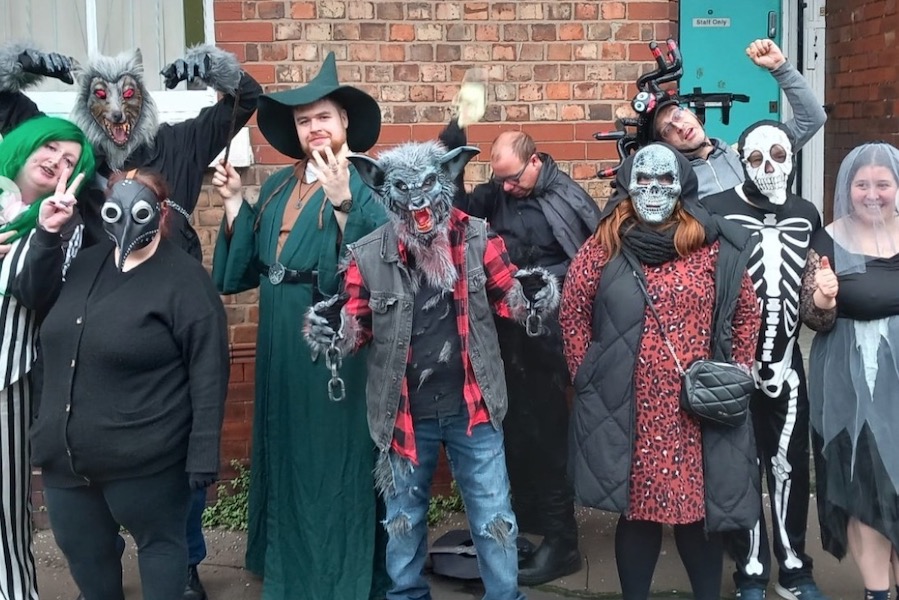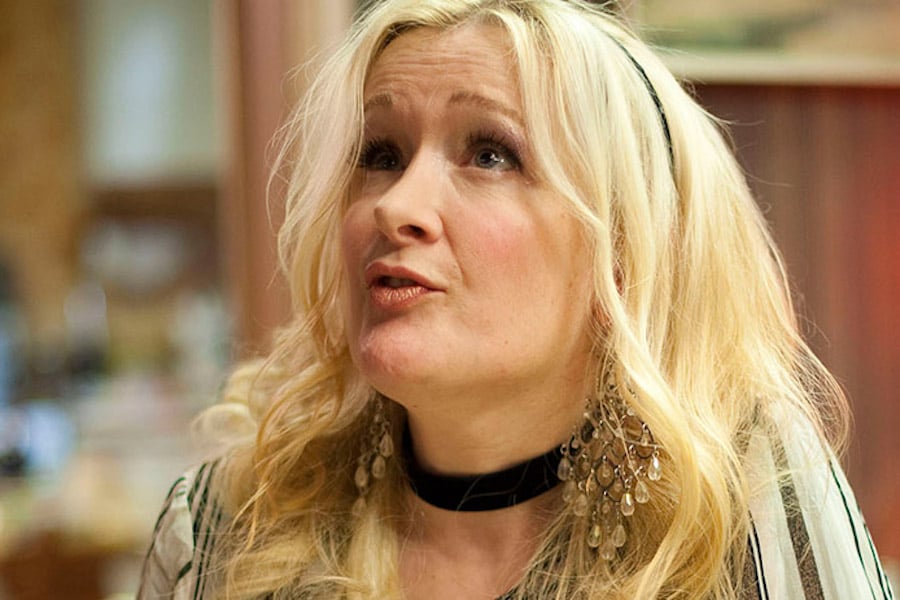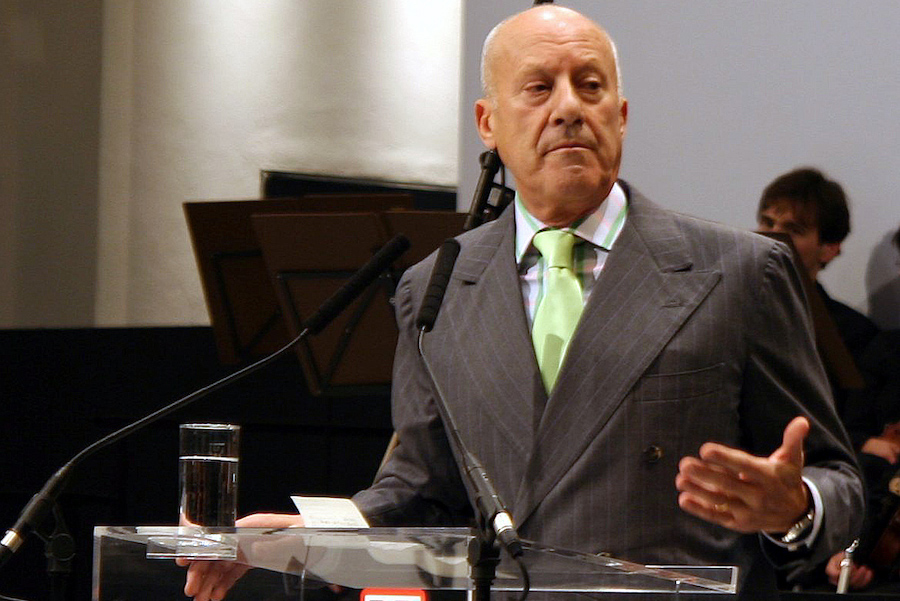The untold story of a kebab van worker turned internationally recognised mental health hero
- Written by Thom Bamford
- Last updated 12 months ago
- City of Manchester, Community, Featured, People

Dr Ahmed Hankir has dedicated his career to improving the lives of those with mental health conditions.
A proud British Muslim, physician, mental health campaigner and researcher, he works on the frontline of psychiatry for the National Health Service at South London and Maudsley NHS Foundation Trust, while also holding teaching posts at both Cambridge University and King’s College London.
His contributions to the field have been recognised with numerous awards, including the Royal College of Psychiatrists Foundation Doctor of the Year and the Royal College of Psychiatrists Core Psychiatric Trainee of the Year.
In 2022, Dr Hankir won the Who Cares Wins Caroline Flack Mental Health Hero Award and received a special personal message from Sir Lewis Hamilton and met with Anthony Joshua.
With a passion for promoting peaceful co-existence and challenging mental health stigma, Islamophobia and anti-semitism, Dr Hankir is committed to ensuring that all individuals have access to the care and support they need.
It may therefore come as a surprise that Dr Hankir came to the UK aged just 17 to escape a brutal civil war in Lebanon.
He credits his difficult journey in life in the UK, starting with his years in Manchester, as shaping his values and making him the man he is today.
Dr Ahmed Hankir’s incredible journey
We spoke to Dr Ahmed about his time in Manchester and his career to date.
“I will never forget leaving my family behind at Beirut International Airport. Not because I wanted to but because prospects in Lebanon were poor at the time I had to.
“We were recovering from a brutal civil war that had far-reaching ramifications so moving to England to try and become a doctor was the plan.
“I arrived in the UK and was perhaps a bit naive that my qualifications from Lebanon would be recognised. Sure enough, they weren’t.
“So, basically, I was in a situation where I needed money fast and my qualifications weren’t recognised, even though I graduated top of the class.”
He was just 17 years old and had to rely completely on the money he made alongside his studies.
Arriving in the UK from Lebanon at 17
“When I first arrived in the UK, I worked in a kebab van in Malvern Hills, selling to customers until 2 am and witnessed my first homicide there.
“It was terrifying, but I moved on and worked as a janitor and then as a stock advisor in a supermarket, earning a minimum wage which was about £5 an hour.
“Life was really challenging, you know? I experienced what it was like for those who were less fortunate. I’m sure many people in British society can relate to that, or even experiencing it right now.”
Despite facing adversity, Ahmed was determined to become a doctor.
Dr Ahmed Hankir’s determination to be a doctor
But when he told the head of the sixth form college at the time about his dream, she laughed in his face and made him feel like he had delusions of grandeur.
She told him medicine was too competitive and that he would never get into medical school.
“I can’t deny it, her words and attitude hurt me, but I didn’t allow her to diminish my resolve,” said Ahmed. “I was completely independent at the time. So I had to work 50 to 60 hours a week to make ends meet and earn money for food and rent.
“I had to wake up at 4 am on Saturdays and work 12 to 14 hours, and then do the same again on Sundays, and work throughout the week whilst attending Sixth Form College full-time.
“Looking back, I don’t know how I did it. This was a constant challenge to secure the grades needed to get into medical school, but I did it. I got straight A’s despite the challenges and stress that being in full-time employment posed.”
Studying at Manchester University
His hard work was rewarded with a place to study medicine at Manchester University
He said it was an ‘awesome’ experience.
“However, I still had to work to survive. I worked in Subway Sandwiches near Owens Park and sometimes for 30 to 40 hours, or even 50 hours per week.
“This was tough because medicine is an intense course, and it was a constant threat to my exam preparation.
“It was a huge struggle. Many people studying medicine are from high-income backgrounds, and those from lower socioeconomic backgrounds are underrepresented in medical school.
“They would go on luxurious holidays and have seemingly unlimited access to resources from their parents.
“So I was working in Subway and I was studying full-time. It was a huge challenge because I was doing 16-hour shifts, working till 1 or 2 in the morning and then waking up at 7 to go to lectures.
“But I was determined to succeed and I was passionate about medicine. I felt like it was my calling and I wanted to help and heal people.”
And eventually, all that hard work paid off.
Graduating from Manchester University
He graduated and got accepted into a prestigious residency programme at a world-renowned hospital in London.
“It was a dream come true, honestly. But it wasn’t easy. I had to work hard and make a lot of sacrifices to get to where I am today. But you know what? It was worth it.
“Because now I get to help people every day and make a real difference in their lives. And that’s all I ever wanted to do.”
But it wasn’t all smooth sailing as he had to drop out of university after suffering a mental breakdown in the wake of the 2006 Lebanon war.
“In 2006, I woke up one morning to discover that hundreds of people had been killed in my hometown in Lebanon.
“This event deeply affected me, but it wasn’t the only factor that led to what some people call a breakdown and others call a breakthrough. Financial hardship and other challenges also contributed to a breaking point, and I developed a severe episode of psychological distress that forced me to leave medical school.
“Those were dark days. I felt stunned and dehumanised, and since my parents were in Lebanon, I was impoverished and even homeless for a time, sleeping rough because my only source of income had been from the Student Loans Company which was severed.
“I couldn’t find a job initially, but eventually found one and saved up enough to move into a dilapidated terraced house in Moss Side. Unfortunately, my housemate died of a drug overdose, which was a harsh reminder of the reality that many less fortunate people face.
“Despite these challenges, I gradually recovered and got back on track. In 2011, I left medical school and qualified as a doctor.
“Manchester has many different faces. When I was homeless and struggling to make ends meet, it was a difficult phase. However, once I qualified as a doctor, things changed. While doctors are underpaid, it was still a much more rewarding time in my life.
“I was grateful to be able to save lives and help people. It was my calling, and I felt blessed to be able to make a difference”
He reflected on how quickly things can turn around in life with dedication and a positive mental attitude and opportunity. He went from sleeping rough and surviving on a loaf of bread a week and jobseeker allowance to becoming a doctor and a pillar of society.
He said he felt that becoming a doctor had always been his calling.
“The feeling of being able to save someone’s life is priceless.
“In comparison to doctors working in Palestine or refugee camps in Lebanon, my pay was really good, so I was just extremely grateful for the opportunity to serve and heal people.”
He then spoke about how these traumatic experiences had pushed him into becoming a psychiatrist, after initially wanting to be a cardiothoracic surgery.
“I didn’t go into medical school to become a psychiatrist. I wanted to be a cardiothoracic surgeon. But when you experience psychological distress, you realise how much power mental health has over us.
“It may be a cliché, but it’s true – the scars that can’t be seen are the deepest. I felt a calling to help and heal people and thought psychiatry was the way to do that. I wanted to hear people and hopefully cure them since mental health conditions can be so debilitating for individuals and families.”
Ahmed now splits his time between campaigning and working as a psychiatrist. In addition to his research, he has also been active in mental health advocacy.
He has spoken at numerous events and conferences, sharing his own experiences and advocating for greater awareness of mental health issues. He has also written extensively on the topic, with articles appearing in publications such as The Guardian and The Independent.
Through his work as a psychiatrist, researcher, and advocate, Ahmed has helped to change the conversation around mental health in the UK and beyond. He has challenged the stigma and discrimination that still surrounds mental health conditions, and has worked tirelessly to improve access to care and support for those in need.
He is now advocating for mental health awareness and has done a lot of work with the World Health Organisation.
Dr Hankir wins the World Health Organisation (WHO) Director General Award for Global Health
In 2022, Dr Hankir was named Director General Award for Global Health for the World Health Organisation.
“I gave a speech to world leaders and health ministers, including Emmanuel Macron, about empowering and dignifying people living with mental health conditions and reducing the stigma associated with it. I’ve been incredibly fortunate to give talks all over the world to over a hundred thousand people in 20 countries.”
I asked Dr Hankir if he had any messages for people going through mental health issues:
He said: “Yes, having a mental health condition is nothing to be ashamed of. Seeking help is a sign of strength, not weakness. Living with a mental health condition, recovery is a reality for the many not for the few.
“That’s what happened to me. I thought I would never recover and qualify as a doctor. But not only did I recover, not only did I qualify as a doctor, but I’m also literally living the dream right now.
“So people with mental health conditions can recover and realise their dreams too with the right support”.
When I asked him what his take-home message would be, he said: “That’s simple. The difference between a good mental health day and a not-so-good mental health day, between acting upon suicidal thoughts and not, can be kindness.
“So in a world where we can be anything, be kind’.
Dr Hankir’s new book
Dr Hankir has written a new book called Breakthrough: A Story of Hope, Resilience and Mental Health Recovery in which he delivers a unique and powerful insight into mental health recovery by tracing his own personal journey.
With extraordinary candour, Ahmed reveals the obstacles that nearly shattered his dreams of being a doctor, from the financial pressures to the discrimination he faced at the hands of his peers and educators and the bullying, racism, and harassment he experienced throughout medical school, post-graduate specialisation and whilst working in the NHS.
The book also recalls his journey to recover from episodes of severe psychological distress and suicidal thoughts whilst at university, and how these experiences have shaped his career focus in psychiatry and suicide prevention.
From experiencing a breakdown to his breakthrough at medical school to winning the World Health Organisation’s Director General Award for Global Health in honour of his work campaigning for mental health destigmatisation and humanisation of people living with a mental health condition, Dr Hankir’s story of recovery is an inspirational tale of resilience and hope amidst adversity and disadvantage.
You can get a copy by clicking here
Dr Ahmed Hankir has a big social media presence on X, sharing stories of joy and inspiration. Follow him by clicking here
- This article was last updated 12 months ago.
- It was first published on 14 April 2023 and is subject to be updated from time to time. Please refresh or return to see the latest version.
Did we miss something? Let us know: [email protected]
Want to be the first to receive all the latest news stories, what’s on and events from the heart of Manchester? Sign up here.
Manchester is a successful city, but many people suffer. I Love Manchester helps raise awareness and funds to help improve the lives and prospects of people across Greater Manchester – and we can’t do it without your help. So please support us with what you can so we can continue to spread the love. Thank you in advance!
An email you’ll love. Subscribe to our newsletter to get the latest news stories delivered direct to your inbox.
Got a story worth sharing?
What’s the story? We are all ears when it comes to positive news and inspiring stories. You can send story ideas to [email protected]
While we can’t guarantee to publish everything, we will always consider any enquiry or idea that promotes:
- Independent new openings
- Human interest
- Not-for-profit organisations
- Community Interest Companies (CiCs) and projects
- Charities and charitable initiatives
- Affordability and offers saving people over 20%
For anything else, don’t hesitate to get in touch with us about advertorials (from £350+VAT) and advertising opportunities: [email protected]
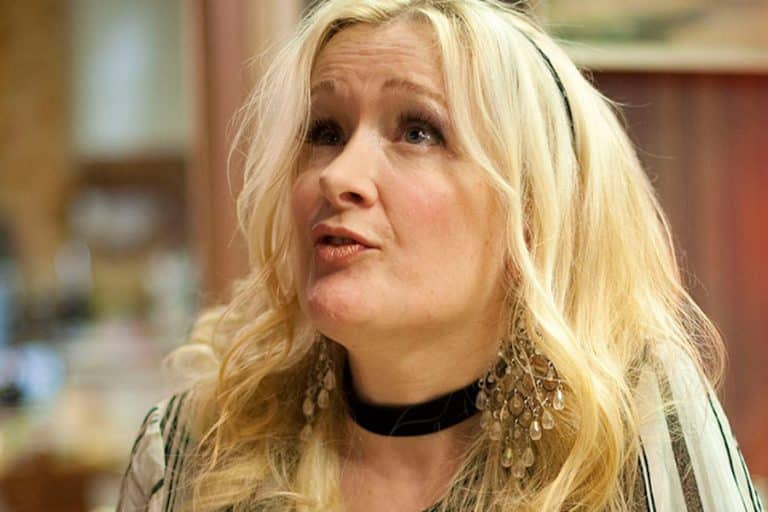

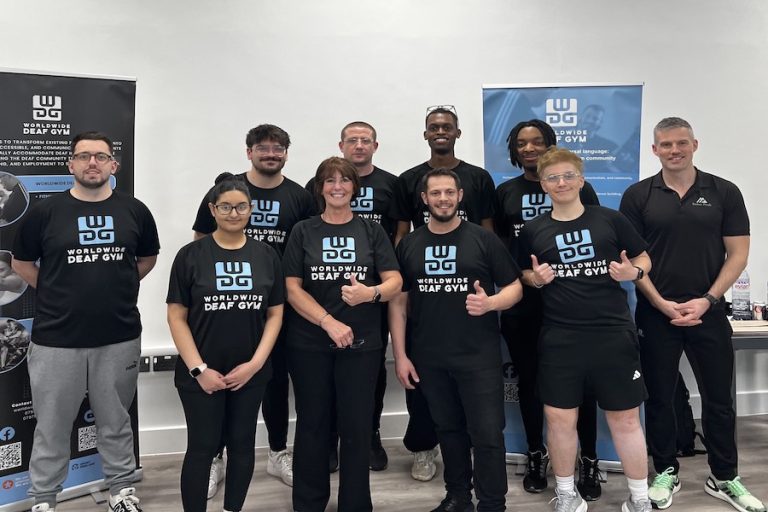
Gyms are failing deaf people – but this company is planning to fix it

The world-renowned Mancunian architect behind Old Trafford’s future

Manchester United reveal plans for new 100,000-seater stadium – set to be UK’s biggest








